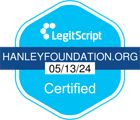Written by Lorrie van Voorthuijsen
These “speech bubble” memes not only reflect two phrases that are now part of the everyday vernacular, but they also characterize two current parenting styles.
If you Google the phrase “I don’t play,” the definition listed in Urban Dictionary (exemplative removed) is – “you don’t mess around . . . you don’t play games and are all business.” Maybe you know some parents like this. Maybe you had parents like this as a child. This is the kind of parent who makes all the rules and sees to it that the rules are followed, using punishment as the consequence to any misbehavior. Sometimes called the Authoritarian or Dictator style of parenting, in this type of household,
- There are many rules, discipline is swift and meted out with little or no negotiation
- Communication is a one-way street, from parent to child, no discussion to follow
- Expectations are high; behavior is restricted accordingly
According to Google, the one-word idiom “whatever” implies indifference – it is used to emphasize a lack of control to anything or amount, no matter what; in other words “do what you want, I don’t care, I’m not involved.” Maybe you know some parents who act in this way, where it seems like the children are on their own and there is no discipline. In this often called Permissive or Doormat style of parenting,
- There are few or no rules and little discipline; often any “rules” are ignored by both parent and child
- Communication is open between adult and children; adults often let the children decide
- Expectations are low; behavior follows accordingly.
While neither of these styles are ideal, those of us who become parents sometimes fall into parenting using one or both of these ways, often because they were modeled for us as we grew up; and, as spouses coming together in parenthood decision-making, conflict can arise between Mom and Dad as we deal with our new generation.
Is there another way? Yes! This kind of parenting, called the Authoritative or Active style, is one that incorporates the best of both parenting styles and, with that winning combination, one can have a household where
- Rules are discussed, followed, and compatible with the family’s values
- Communication is open and respectful
- Expectations are high with behavior following accordingly
The Hanley Foundation offers Active Parenting workshops; free of charge, they are video-based, facilitator-led six-week parenting workshop that is both evidenced-based and effective in discussions of:
- Winning cooperation and the road to communication
- Building courage and self-esteem
- Instilling responsibility and discipline
- Giving choices and enjoying mutual respect
- Understanding and redirecting misbehavior
- Handling anger and power struggles
There are two versions – Active Parenting 4th Edition guides those with young children ages 5-12 and includes a session on “Seven Smart Things Active Parents Do to Help their Child Succeed in School”.
Active Parenting of Teens directs those with children in the teen years and additionally includes sessions on Drugs, Sexuality, and Violence: Reducing the Risks.
With Active Parenting, the 2020 parenting “speech bubble” can change to an even more current, and hopeful, meme –
https://www.brighthorizons.com/family-resources/parenting-style-four-types-of-parenting
Active Parenting 4th Edition and Teen



